

Report: Six North Atlantic Right Whales Found Dead Off Canadian Coast
Update 7/3/2017: The first whale, a 46 foot male has evidence of blunt trauma and the second whale, a 50 foot male who was identified as a 37+ year old male who has fathered at least two calves, also had evidence of blunt trauma consistent with a ship strike. The third whale, a 43.5 foot female, had what was classified as a chronic entanglement as she was found with a long length of at least 1-inch thick polypropylene rope wrapped around one flipper that had caused tissue damage at the least and possibly led to an infection or other complications. Entanglement in fishing gear is the number one cause of death for North Atlantic right whales with ship strikes being the second. As for this year, there have been 7 deaths, one confirmed as a ship strike, two possible ship strikes and one chronic entanglement. We urge everyone reading this to check out our fact sheets on how humans are causing their deaths and how we can help to prevent them.
Update 7/2/2017: Three of the whales have been towed to shore and had necropsies performed. The first whale had signs of blunt trauma which is consistent with a ship strike but the cause of death hasn't officially been determined. There are also reports that one of the three whales was entangled in fishing gear used in the Canadian snow crab industry. This is the second whale in two years to die after becoming entangled in fishing gear used by that industry and means that 20% of known deaths of North Atlantic right whales in the past two years have been caused by that industry. Please visit our 'Facts' section to learn more about fishing gear entanglement and what we can do as citizens to help prevent it.
June 26, 2017
Researchers in Canada have reported finding six dead North Atlantic right whales floating in the waters of the Gulf of St. Lawrence of Canada since June 6th. This is a horrific event and as far as we can tell the amount of deaths in such a short time is unprecedented since the days of whaling.
Researchers have been able to take samples from two whales so far in the hopes of identifying the cause of death. It is difficult as some of the whales have only been seen dead only to have either drifted somewhere else or perhaps have sunk to the bottom by the time researchers have arrived. There are also weather and logistical issues complicating the necropsy efforts. There are a number of potential causes such as entanglement in fishing gear, ship strike, noise pollution, chemical pollution and bacterial or viral issues and it is hoped that the biological samples will tell them what happened. A fisheries official in Canada, biologist Cathy Merriman, stated in an interview,
"It has potential quite negative implications for the ability of that population to recover. There's a lot of work and a lot of effort needed to try and understand what is happening, and hopefully it's something that can be prevented, but we really just know nothing right now."
At least two of the whales found dead are females which is particularly devastating as they could have potentially produced many calves over the years to help bring back the population to healthy levels. Only five new calves were seen this year which is only about 1/3 of the average of 14 per year seen from 2014-2016 and is the lowest rate in 38 years. Furthermore, with only around 500 North Atlantic right whales left, the deaths of six represent around 1% of the entire population. These kinds of numbers are horrific and frustrating but they do prove one thing: that various efforts and laws to save these whales must be increased and that we all need to make sure that we're doing what we can in our everyday lives to help these whales. On our 'Facts' page we have heavily-researched fact sheets on what exactly is happening to North Atlantic right whales and what we can do to help. We urge all that are reading this to check out that page so that we can prevent these magnificent whales from going extinct.
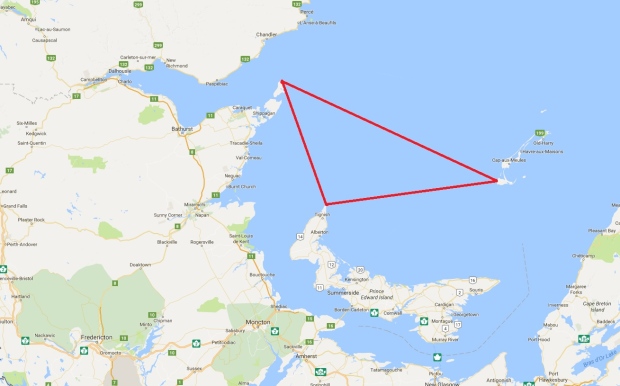
This map shows the approximate area where these whales have been found. Quebec is on the northwest, New Brunswick to the southwest, Prince Edward Island to the south and Nova Scotia on the southeast.
Credits: Jordan Gill, CBC and Google Maps
There are members of agencies and organizations including Fisheries and Oceans Canada (DFO), the Canadian Coast Guard, Marine Animal Response Society, Canadian Whale Institute, Atlantic Veterinary College, Canadian Wildlife Health Cooperative and the NOAA that are working to figure out what happened. We would like to thank all involved in this investigation for their hard work.
With regards to the investigation, please 'Like' our Facebook page and select 'See First' at the top of the page after you have liked it to receive updates from the page if you haven't already. We will keep posting updates on the investigation as it unfolds. The photos below have been gathered from the Facebook page of the Marine Animal Response Society.
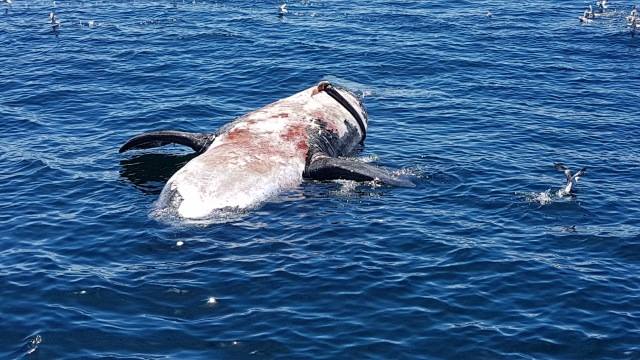
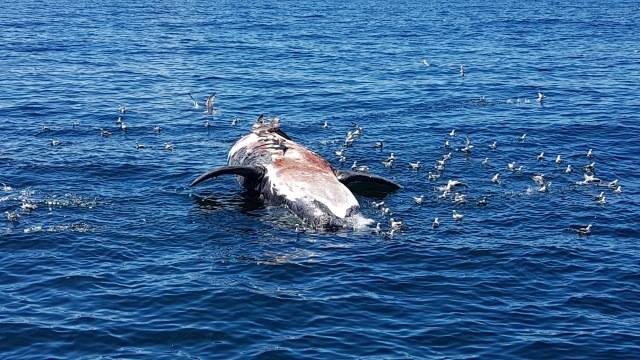
The first North Atlantic right whale that was found dead in June. This whale was seen on June 6th approximately 60 kilometers off the coast of the Magdelen Islands, Quebec (47,379444, -63,0113888).
Photo credits: Pierre Richer
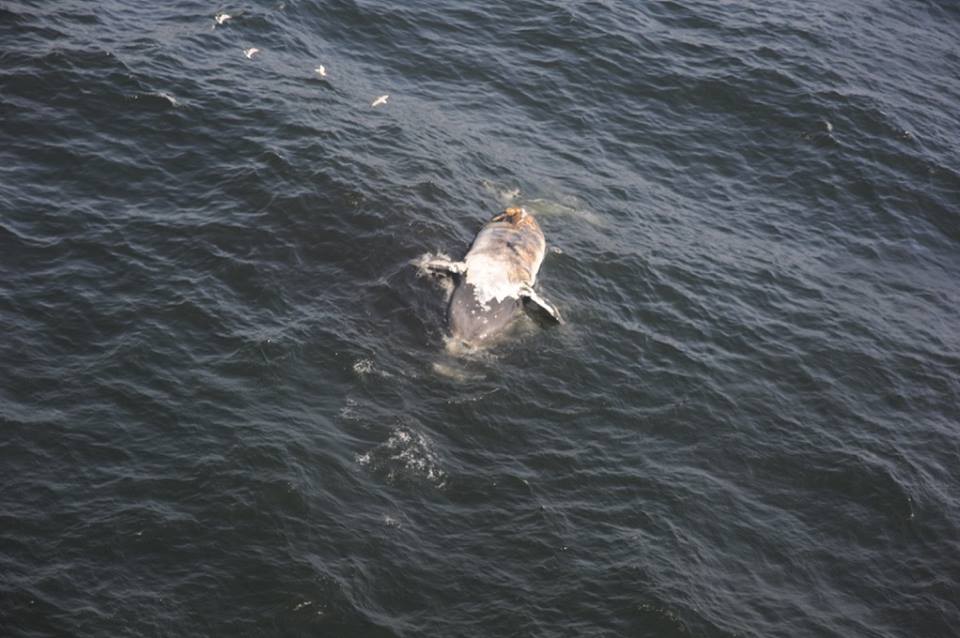
June 19th - 13:31 - The second right whale was observed drifting on June 19th at 13:31 in the Gulf of St. Lawrence, between the Magdalen Islands and New Brunswick (47° 26.54'N 063 34.92'W).
Photo credits: Jean Leblanc, DFO
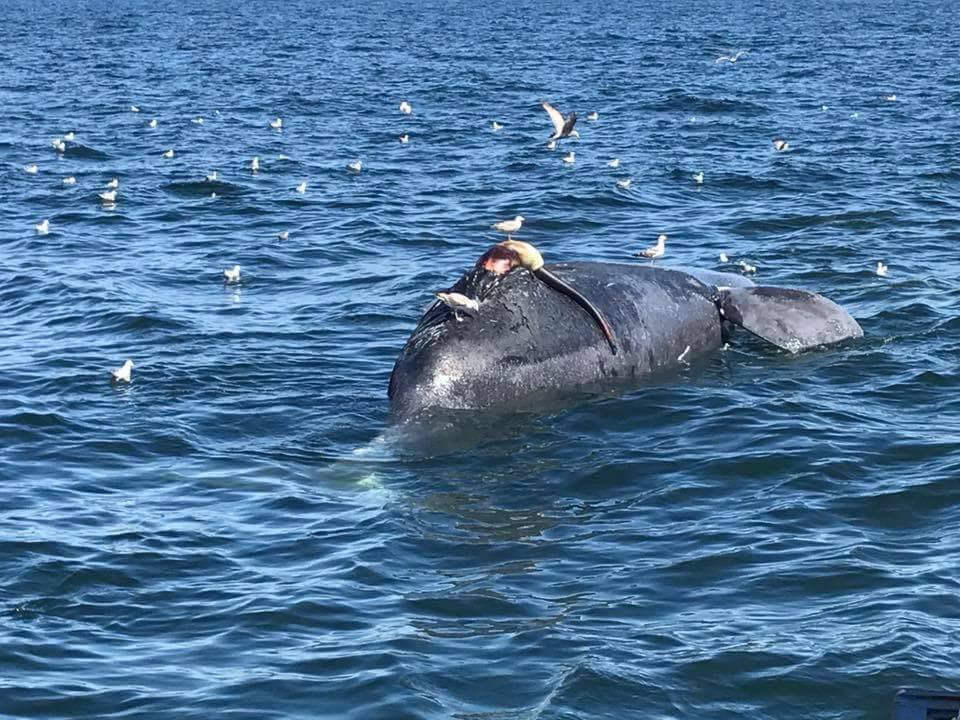
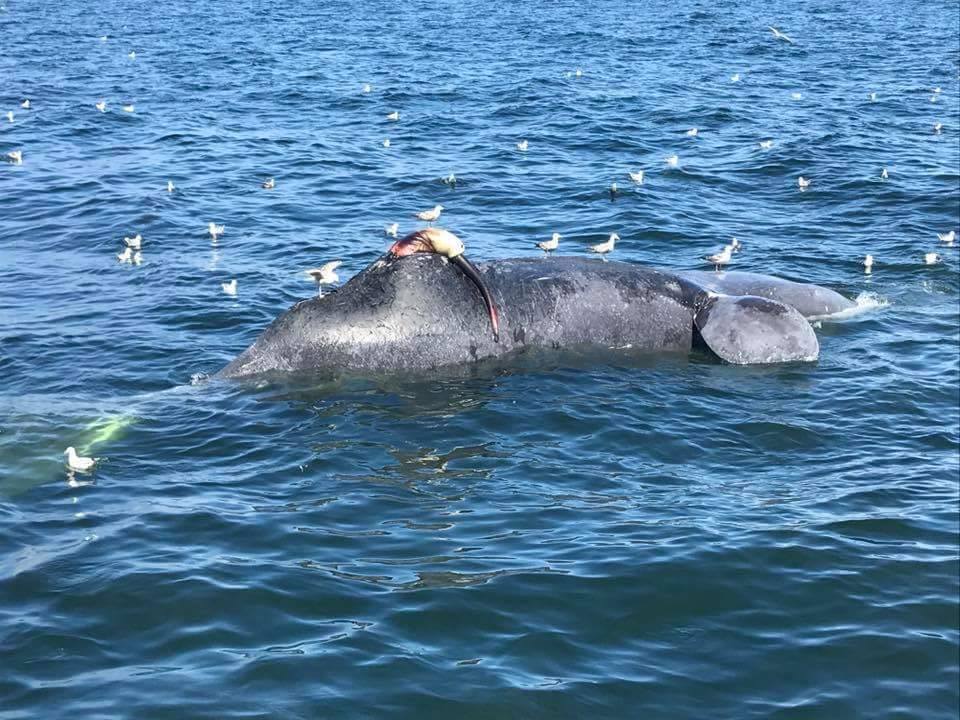
The third whale was spotted on June 19th and reported to be at approximately: 47.746451, -63.224649 in the Gulf of St. Lawrence. This is one of possibly four males that was found dead.
Photo credits: Marine Animal Response Society
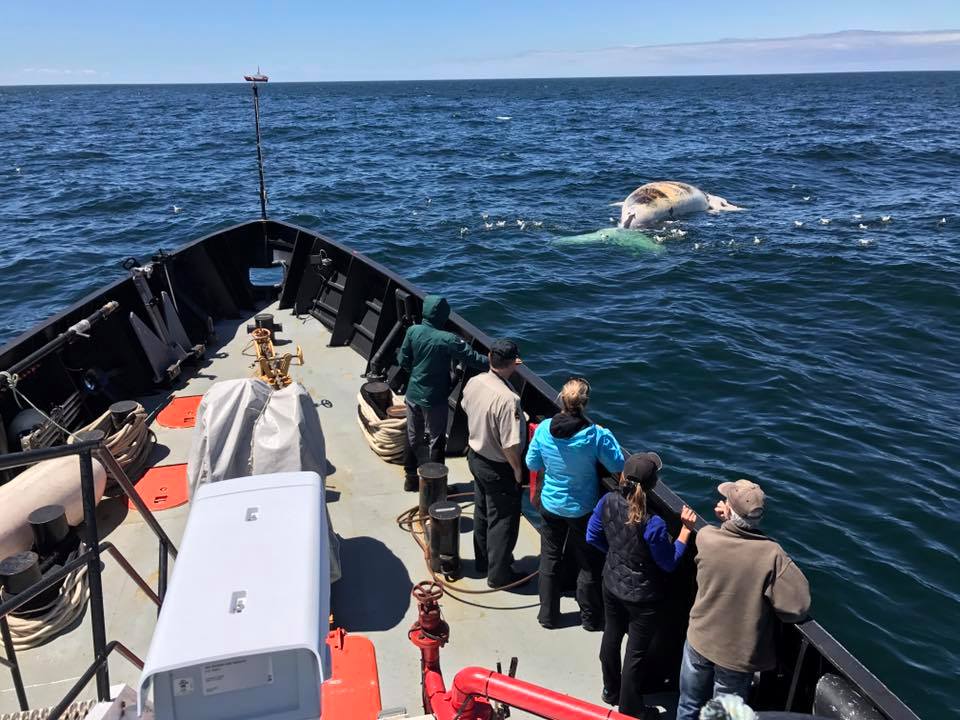
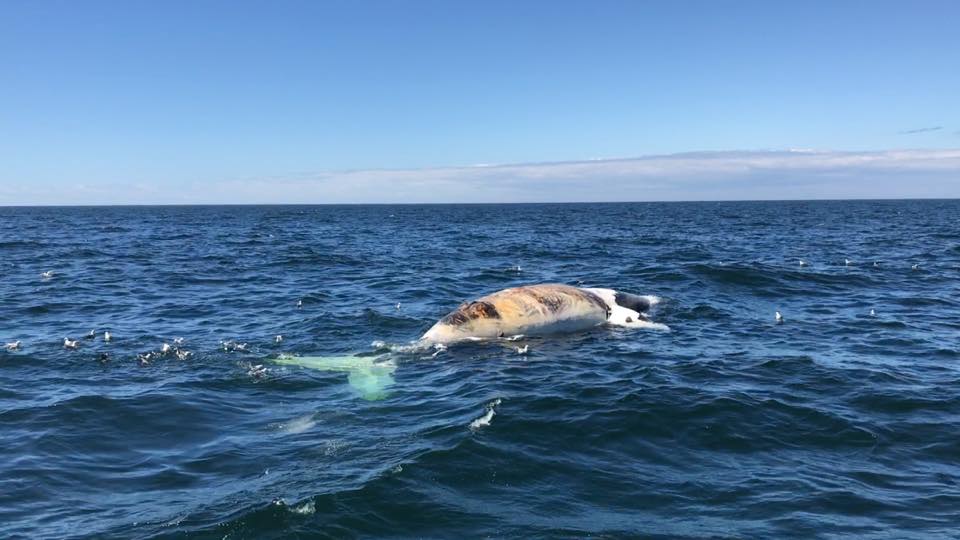
The fifth whale, one of at least two females found dead in the area. Samples were taken from this whale along with one other on the same day.
Photo credits: Marine Animal Response Society
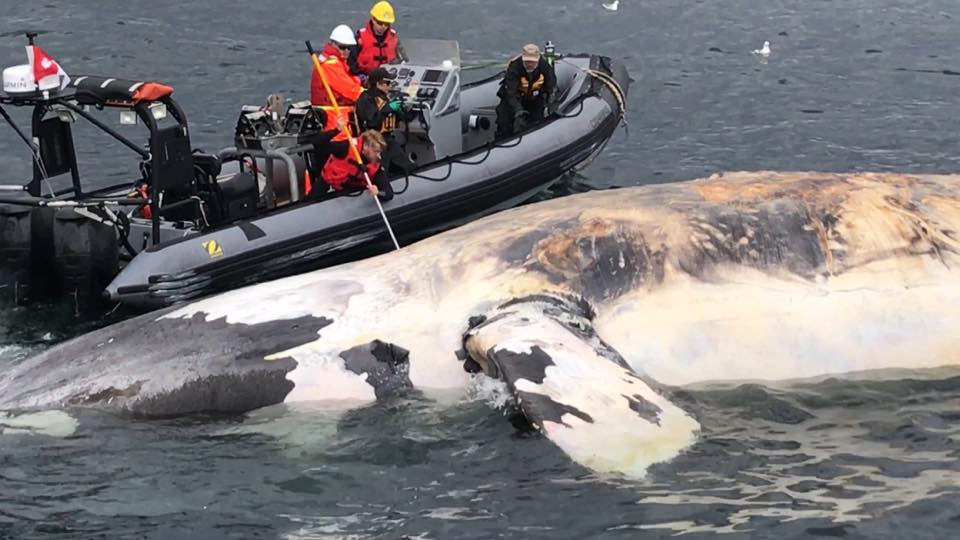
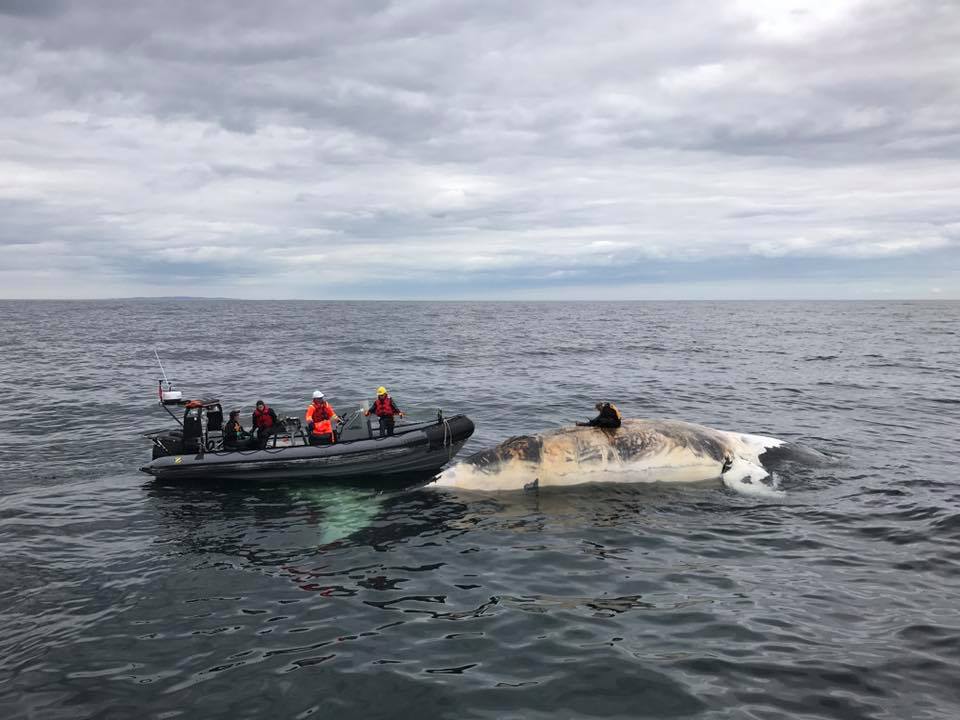
These two photographs were posted on June 23rd by the Marine Animal Response Society, the day they found two of the whales and took samples. We are not sure if this is the fifth or sixth whale.
Photo credits: Marine Animal Response Society
Sources:
http://www.cbc.ca/news/canada/new-brunswick/six-dead-right-whales-1.4176832
https://www.eturbonews.com/158064/fisheries-oceans-canada-concerned-deaths-north-atlantic-right-whales
https://ca.news.yahoo.com/fisheries-department-looking-whale-deaths-155024159.html
http://globalnews.ca/news/3553636/biologists-looking-for-answers-in-death-of-endangered-right-whales/
http://www.cbc.ca/news/canada/prince-edward-island/north-atlantic-right-whale-deaths-necropsy-1.4187344
https://www.usnews.com/news/best-states/massachusetts/articles/2017-06-30/scientists-alarmed-by-6-right-whales-deaths-in-canada